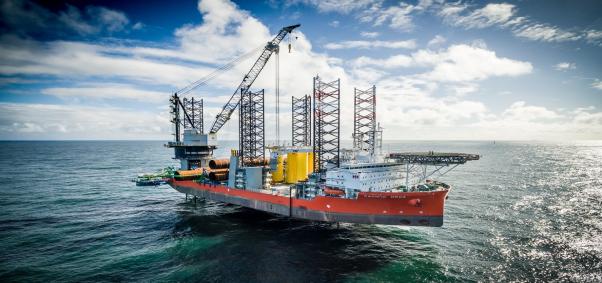
For Immediate Release
Contact: Ferzina Banaji; Communications Manager, +91 99102 32450, ferzina.banaji@
Delhi – February 5th, 2015: India has an opportunity to improve the quality and quantity of economic growth, according the Global Commission on the Economy and Climate. Research conducted for the Commission, led by former President of Mexico Felipe Calderón, highlights the enormous opportunities for India in developing renewable energy and improving urban development. However future growth, in both Indian cities, but also the agricultural sector, is at risk from climate change.
During a visit to India Felipe Calderón said: “India can create better growth, and at the same time ensure a safe climate for its citizens. Prime Minister Modi has set out a bold vision for India that will make it a leader in solar energy. We believe it is in India’s economic self-interest to go even further. The Global Commission highlights huge opportunities for India. It recommends practical steps to make renewable energy cheaper and available to more people, building smarter, better connected cities and harnessing the enormous potential of India’s villages by investing in agricultural innovation.”
India’s economic prospects hinge on its ability to meet fast rising demand for energy and securing access to the approximately 300 million people who currently lack it. Research conducted for the Commission finds that while the cost of foreign coal is projected to increase, the cost of renewable energy is likely to substantially decrease.
Rajat Kathuria, Director and Chief Executive of ICRIER, a partner institution that contributed to the research, said: “Key reforms in three Indian sectors – energy, agriculture and land use, and cities – can allow India to significantly boost its economic development, ensure inclusive growth and reduce the risk of dangerous climate change. For instance, energy sector reforms, with the right social protections in place, can play a major role in helping India meet its development challenges and will not negatively impact the poorest people.”
Research conducted for the Commission suggests utilising innovative financing and distribution models to unlock the potential of renewable energy, for example by lowering the cost of capital for renewable energy. It also notes how fuel subsidy reform can correct distortions and market failures and reduce crippling power sector losses. The immediate effects of such reforms are likely to be more easily absorbed due to low global oil prices.
Urban development in India is projected to continue to grow at a staggering rate: in the next 15 years, India’s urban population will cross 600 million. Its cities will account for 75% of national GDP and 70% of all net new jobs. But urban sprawl, congestion and severe air pollution are reducing productivity. Half the world’s most polluted cities are in India, including the top four in the world: Delhi, Patna, Gwalior, and Raipur. Delhi’s PM 2.5 pollution level is sometimes as high as 15 times the WHO’s suggested limit.
In response, research conducted for the Commission recommends loosening building restrictions in order to contain urban sprawl and building better infrastructure including improving public transport. It also suggests strengthening the hand of urban governments to enable them to lead better urban development.
Paul Polman, Chief Executive Officer of consumer goods multinational Unilever, who is also a member of the Global Commission, highlighted the importance of reforms to land use and agriculture:
“India’s agricultural sector faces significant risks from climate change but it also has enormous potential to become part of the solution. Innovation in this sector has the potential to change the lives of over 600 million people.”
With this in mind a shift in public spending from agricultural subsidies towards Research and Development, which has a much higher return on investment, could be extremely beneficial.
ENDS
Notes for editors:
Research conducted for the Global Commission, India: Pathways to Sustaining Rapid Development in a New Climate Economy, is available at www.NewClimateEconomy.report/
About the New Climate Economy
The New Climate Economy is the flagship project of the Global Commission on the Economy and Climate. It was established by seven countries, Colombia, Ethiopia, Indonesia, Norway, South Korea, Sweden and the United Kingdom, as an independent initiative to examine how countries can achieve economic growth while dealing with the risks posed by climate change.
Chaired by former Mexican President Felipe Calderón, and co-chaired by renowned economist Lord Nicholas Stern, the Commission comprises 24 leaders from 19 countries, including former heads of government and finance ministers, leading business people, investors, city mayors and economists. It has been advised by a panel of world-leading economists chaired by Lord Nicholas Stern and includes two Nobel Laureates.
Research for the Commission has been carried out by a partnership of leading global economic and policy institutes, including the World Resources Institute (Managing Partner), the Indian Council for Research on International Economic Relations (ICRIER), the Climate Policy Initiative, Ethiopian Development Research Institute, Global Green Growth Institute, LSE Cities at the London School of Economics and Political Science, the Stockholm Environment Institute, and Tsinghua University.
Members of the Global Commission and authors of the New Climate Economy report are available for comment. For media inquiries contact:
Ferzina Banaji, Ferzina.banaji@
Tan Copsey, tan.copsey@newclimateeconomy.






